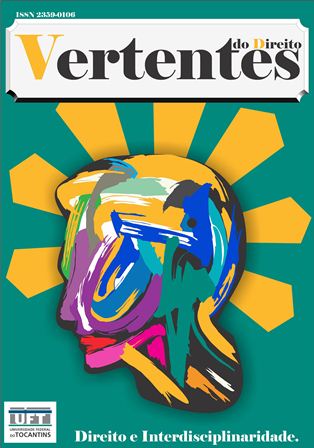O DIREITO COMO INTEGRIDADE E O ROMANCE EM CADEIA DE DWORKIN: DIÁLOGO COM A RESPOSTA ADEQUADA DE LENIO STRECK E COM A NOÇÃO DE ESPAÇO PÚBLICO DE HANNAH ARENDT
DOI:
https://doi.org/10.20873/uft.2359-0106.2021.v8n2.p202-220Keywords:
decisão judicial, Dworkin, comunidade de princípios, resposta adequada, Lenio StreckAbstract
This study aims to analyze the connections between Ronald Dworkin's model of judicial decision-making, Lenio Streck's adequate response and the notion of human rights assumed by Hannah Arendt. In this step, we intend to demonstrate how the magistrate should decide in the light of the figure of Judge Hercules and the exercise of the chain novel woven by Dworkin. Thus, we will seek to explain the content of the legislative principle of integrity - and its necessary dialogue with the work “Origins of totalitarism” by Hannah Arendt - as well as explaining about the jurisdictional principle of integrity, while including the criticisms made to the Judge Hercules and Lenio Streck's contribution to the adequacy of Dworkin's judicial decision model in the Roman-Germanic system. The methodology used in this article comprises a qualitative, dialectical approach, of a basic nature, containing an explanatory objective and a bibliographic, documentary, historical and observational procedure. The results of the research show that the community of principles mentioned by Ronald Dworkin finds support in Hannah Arendt's ideas about public space, power, human rights and politics. Furthermore, the research undertaken concluded that the concern with the idea of a correct answer, undertaken by Dworkin and Streck, implies a reinforcement of the community of principles and of the realization of fundamental rights. Future research may focus on the theme now developed in order to investigate more deeply the adaptation of Dworkin's theory in the Roman-Germanic system and the existing link between the reinforcement of the community of principles and the realization of human rights.
References
ARENDT, Hannah. A condição humana. Rio de Janeiro, Forense, 2010.
ARENDT, Hannah. Origens do totalitarismo. São Paulo: Companhia das Letras, 1989.
BITTAR, Eduardo. Introdução ao estudo do direito: humanismo, democracia e justiça; 2. ed. rev. e ampl. São Paulo: Saraiva, 2019.
DWORKIN, Ronald. O império do direito. São Paulo: Martins Fontes, 1999.
DWORKIN, Ronald. Uma questão de princípio. São Paulo: Martins Fontes, 2000.
HART, Herbert. O Conceito de Direito. Lisboa: Fundação Calouste Gulbenkian, 2007.
STRECK, Lenio. Dicionário de Hermenêutica: quarenta temas fundamentais da Teoria do Direito à luz da Crítica Hermenêutica do Direito. Belo Horizonte (MG): Letramento, 2017.
Downloads
Published
How to Cite
Issue
Section
License
Os trabalhos aprovados para publicação tornar-se-ão propriedade da Revista sem qualquer ônus para a mesma. A Equipe Editorial se reserva o direito de promover as adequações necessárias para publicação.
O conteúdo dos trabalhos publicados na Revista Jurídica eletrônica Vertentes do Direito - inclusive quanto à sua veracidade, exatidão e atualização das informações e métodos de pesquisa - é de responsabilidade exclusiva dos autores. As opiniões e conclusões expressas não representam posições da Revista nem da Universidade Federal do Tocantins.
















